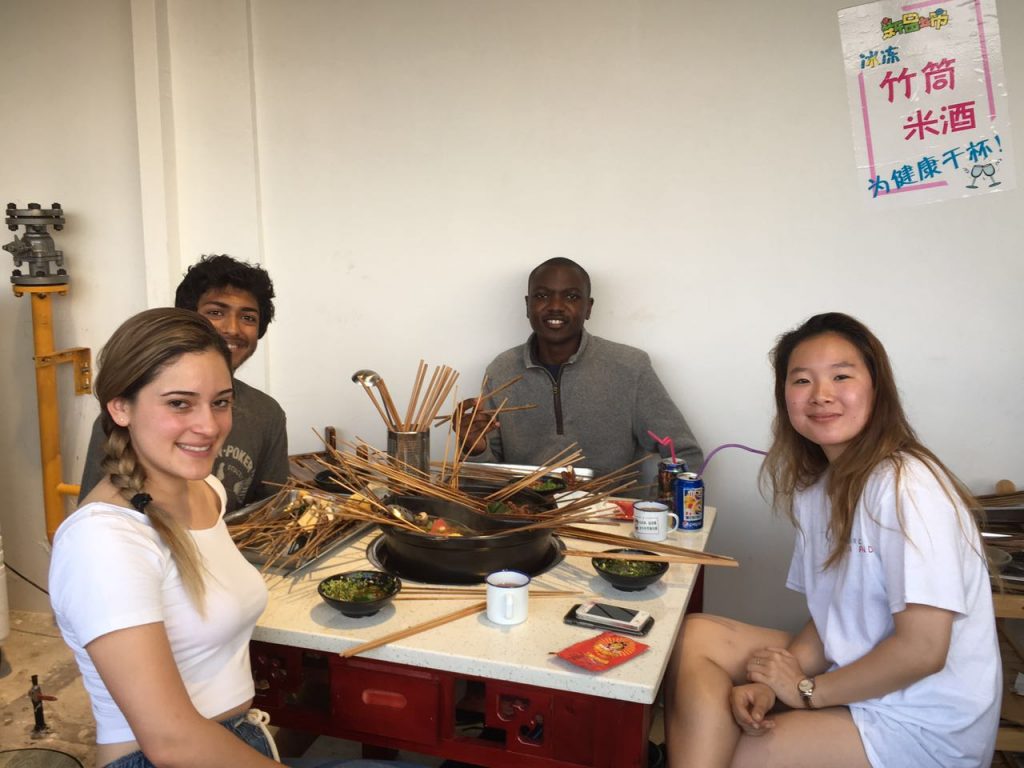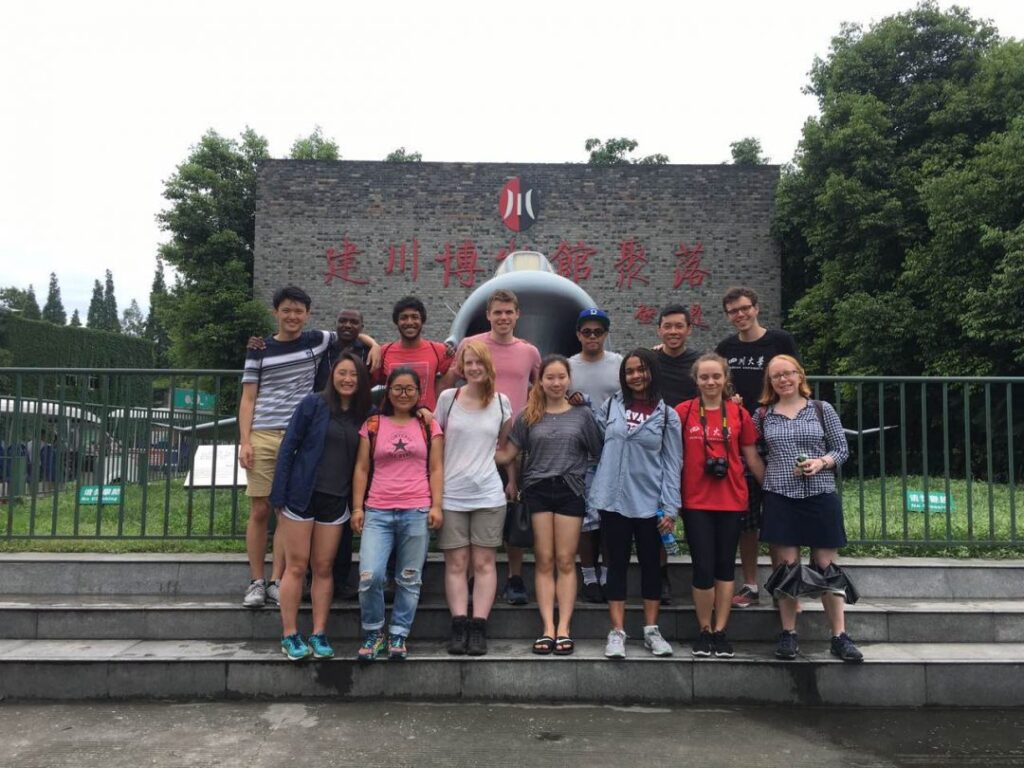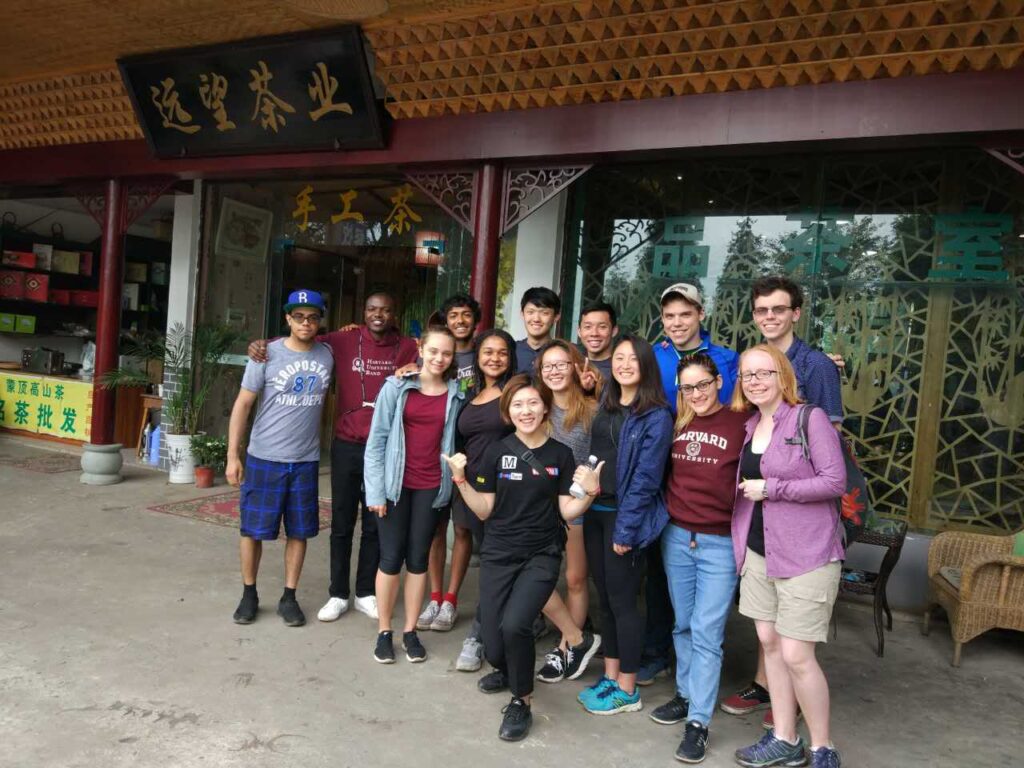Jul 10, 2017
It was not an easy decision trying to figure out how I would best spend the summer after my fast-paced and hectic freshman year at Harvard. I wanted something that would be relaxing and allow for introspection, but also enriching either academically or socially. I finally settled on Harvard China Fund’s Chinese Language and Culture Program at Sichuan University in Chengdu, China.
Chengdu is a vibrant and bustling city. It feels like home, but at the same time is a little mysterious to those new to the area. It provides the immersive cultural environment that foreigners always yearn for with most people in the area speaking Mandarin as their primary language and affords visitors the chance to experience local culture. For instance, huoguo (hot pot), a sumptuous spicy Sichuanese cuisine, is offered in most restaurants in the area

This program has been a great experience so far. We have Chinese classes every weekday and, despite arriving with absolutely no Chinese language experience, I am now confident in my ability to navigate the area and carry out basic transactions with local people. We also take classes focusing on Chinese culture, both ancient and contemporary. For example, learning calligraphy complements the writing aspect of Chinese language and helps me understand how to combine the various strokes to come up with a meaningful word. What an amazingly complex writing system! My Mandarin vocabulary has grown exponentially ever since I came here and this has boosted my confidence in engaging with locals. The intimate nature of the class setting allows everyone to participate actively and provides a way for the teachers to get to know us better. I also enjoy practicing with the tutors.
I always look forward to Saturdays when we visit popular sites throughout Sichuan. The trips not only complement the Chinese culture classes, but also strengthen the bond within the student group and with the student volunteers from Sichuan University. It was a wondrous experience getting to see the oldest irrigation system in the world, Dujiangyan (都江堰), which holds a special place in the history of Sichuan Province. I was awestruck not only by the ability of the dam to survive almost two millennia of existence but also the technology used in the dams to regulate water, which attests to the brilliance of the builders of the dam. It was also quite a magical experience climbing Mt. Qingcheng (青城山), an important site of Taoism, which is alive with Taoist temples crowded with tourists from all over China.


Unforgettable too is the trip to Mt. Mengding (蒙顶山)which is the birthplace of tea culture in China. Among the varieties of tea, green tea is the most popular and the variety we got a chance to learn a lot about from the trip. We experienced first-hand the whole process involving the picking of tea-leaves from the farm to the different stages of processing up until it’s ready for consumption. The tedious task of picking tea leaves from the farms was worthwhile when at the end, we got to drink tea processed from the tea leaves we had picked as we shared jokes and anecdotes.
I have grown massively in my understanding of Mandarin and Chinese culture while in Chengdu. I’m looking forward to learning more in the remaining week!
This blog post was written by Bryan Oyaro, Harvard College Class of 2020, and participant in the 2017 Harvard China Fund – Sichuan University Chinese Language and Culture Program.